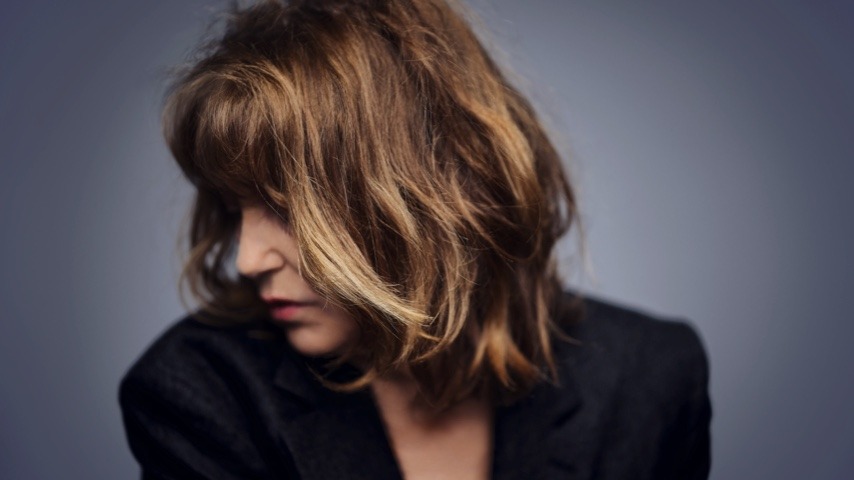English-born Parisian pop-cultural icon Jane Birkin knew what was in the French headlines last week. And she was aware of its mostly negative nature. Former President Nicolas Sarkozy, convicted of corruption, had been sentenced to one year in jail—or house arrest—with two years suspended, a verdict he was appealing while his significant other Carla Bruni sang “Stand by Your Man” in steadfast support. Current President Emmanuel Macron—now seen as an EU-favoring “Brussels lapdog,” is being deserted by left-wing voters in droves, as right-wing National Rally candidate Marine Le Pen is gaining in pre-2022 election polls under a xenophobic headscarf-banning banner. With past governments, the seasoned 74-year-old sighs, “Weird things were going on all the time, I think—I remember with every Presidency, there was always something being swept under the carpet. Also, you had Trump, and I always thought that we shouldn’t scoff too much, because we had Marine Le Pen and (UK Reform Party leader) Nigel Farage in England, so Nationalism raises its ugly head once again. It’s nothing new.”
Additionally, photographer Raymond Cachetier—famous for his insightful shots of French New Wave film stars like Jeanne Moreau and Jean-Paul Belmondo—had passed away at 101, but Birkin apologized for not being up on all the details of his life. “Today is a strange day,” she said, speaking on March 2 about her new 14th album, Oh! Pardon tu dormais… “Because it’s been 30 years since Serge died, so the news and everything on the television and the radio has been going on about him all weekend, and all today, of course, so it’s been very touching.” Serge, as in Serge Gainsbourg, the ultra-hip actor and singer/songwriter she first met and fell in love with back in 1968, on the set of her first French film for director Pierre Grimblat, Slogan. By 1969, she’d left Swinging London for Gainsbourg and Paris, where the couple began recording together (that year’s classic Jane Birkin/Serge Gainsbourg duets debut, boasting one of the steamiest singles ever banned by the BBC and the Vatican, “Je t’aime…moi non plus”) in a relationship that would last 13 photogenic years.
And naturally, since the lady’s influence has cut such a wide worldwide swath over the years—extending to the fabled Hermes Birkin Bag designed in her honor—her modern worldview is just as expansive. She’s been riveted by the news coming out of Myanmar since a military junta toppled its democratically-elected government on Feb, 1, like the recent killing of 18 pro-democracy protesters, and the trade business that French energy giant Total is continuing to conduct with Myanmar Oil and Gas Enterprises. “It’s all really terrifying, so I’ve been signing petitions for the United Nations to do something about it,” she says, an ominous snarl darkening her otherwise bright, Gallic-inflected lilt. “And 10 years ago, I was writing letters and standing out and screaming and going to see Sarkozy about Total, a company which is keeping that junta alive. And it’s difficult, boycotting Total—I did it for five years. But if people are interested—which I suppose they’re not particularly—I think that there’s a lot that we can do as ordinary people to boycott Total. I’m much more interested in that than what Sarkozy was up to!”
Birkin didn’t intend to go off-topic. But that’s the free-thinking, politically-conscious mindset she’s always maintained, and imbued into her three artistic daughters—actress/singers Charlotte Gainsbourg, Lou Doillon, and late photographer Kate Barry, whose tragic 2013 death she addresses in her musical updating of “Oh! Pardon.” It was an idea that began as a 1992 TV movie tracking a couple’s late-night argument, starring Jacques Perrin and Christine Boisson, then morphed into a popular stage play in which Birkin herself starred as the female character, Elle. A fan of the drama from the rock world at the time, Etienne Daho, urged her to streamline the dialogue into a one-woman show/album, for which he and collaborator Jean-Louis Pierot would provide the music, an idea she initially shrugged off. “It was never the right time for him or me,” she recalls. “And then when Kate died, I went off with Michel Piccoli and we just read Serge’s poems in theaters. And then I did [2017’s orchestral tribute] Birkin/Gainsbourg: Le Symphonique which toured for the last four years, after which I thought, ‘Well, I wonder if Etienne’s still interested after 20 years?’ So I got my agent to ring him so he could get out of it if he wanted to.”
Not only was the project still a Go for Daho, he and Pierot had written most of the vaudevillian music for the Oh! Pardon album before Birkin even arrived to record with them at the beginning of 2020. She had just enough time last week to elaborate on it and a few other pertinent topics before her dinner date that evening with Bambou, the last significant other in Serge Gainsbourg’s life when he died in 1991. “It’s going to be a very special night,” she predicted.
Paste: What was the original theme of “Oh! Pardon,” the film?
Jane Birkin: I’d written a short script, and Jacques Doillon—with whom I was living—said, “Be really brave and make it an hour and a half of real time. Make a long movie out of it, a real movie.” So I’d been his script girl and his assistant on La fille de quinze ans (Girl of Fifteen in 1989), so I knew how you could do very long concentrated shots—you didn’t have to cut away, and you could just stick the camera in the actors’ faces. So thanks to being an assistant with him—and a hell of a lot of dialogue work, too—I realized that I could actually do it in a bedroom, and I wrote the dialogue accordingly. And on that, I sent it off to Jacques Perrin, who said not only would he be in it, but he would also produce it. So then I was on my way. And it was something that was only seen on television because it was so arty—it didn’t come to the cinema. And a few years later, another film director asked if I wanted to do it as a stage play, and to play in it myself. And I thought, “Well, I might as well, because this was really a part that was created for me, and I knew the character of Elle very well. And that’s when Etienne came along to see the play, which is rare for a singer and a songwriter to be interested in the theater. But he came along several times, and he said that he had known the feeling of the girl and the man, and he’d been through something very similar himself. So for the past 20 years, he’s been saying, “Why don’t we make a long-playing record out of this, a musical monologue for just one person?”
Paste: What was the message in the original movie, and how has it changed in the musical reiteration?
Birkin: There is no message. But I’m pleased if people feel like they’ve been through that, or that it reflects something in their own private life. And it seems to have done so. But it’s all about separations and jealousy and panic and losing people and ghosts—everything that’s in the record. And the record is similar to the play and the first TV thing I did in that it’s about asking questions at the wrong time of night, and not getting the replies you want. And then it turns into a nightmare. And then the person even says that it would be better, indeed, that you should separate for a while, and you realize that they’d even gotten a separate apartment that you knew nothing about. He had a key and everything and he’s going to leave, so that’s the end of that. And you wish that you were a dog and you go ‘Woof woof!’ And that’s how the play ended. But Etienne said, “No, you can’t go ‘Woof woof’ on the record, because that would seem rather strange.” But it reflects the original script very much, even though there are ghosts in it, which there weren’t before. And there’s Kate—the losing of Kate, which I fact comes up quite a few times, in “Ghosts” and “Catch Me if You Can” and other songs. Sooo…she’s around.
Paste: In “Catch Me if You Can,” one of the songs you sing in English on this mostly French album, you talk about the “Fear of growing old.” Was that something you worried about when you were young and carefree?
Birkin: I think in my diary that comes out quite a lot. And I didn’t realize it then, because I didn’t think I worried about it all. And if anything, things were better for me at 40 than they were at 20. But in my diary, I was forever worrying that John Barry, then Serge or Jacques Doillon would leave me because I got too old. Even the song “Pardon” itself—I could have sung it to John Barry, because he was handing over the sleeping pills and telling me to sleep in the room next door, because I’d kept him from sleeping. I would ask him the same question—“Do you love me? And will you love me in 10 years’ time?”—at two o’clock or three o’clock in the morning, which I should think drove the poor man mad. So it doesn’t seem to me that one changes very much. And the ‘Fear of growing old’ in that song is a mixture of Kate and me. I thought of it because of a little Post-it that was stuck in her diary, where it said, ‘Ulysses between his parents.’ And she’d done an expo with a little film she’d made of me, starting to cry, set to her father’s music. It was her very last expo, and when I attended, I didn’t tarry too long because I was doing a film somewhere else, and I’d come to Paris just to see it. But her whole little film was about John and Serge and me, and I realized that Yes, that had been very important to her. So the idea of coming back to Ulysses between his parents gave me a comforting feeling of coming home, of children on forgotten hills from my childhood, and then the idea of getting older. And will anyone be there? And of course, The Beatles did it better in their song—“Will you still need me when I’m 64?”
Paste: Which is ironic, given the timeless, beautiful photographs shot of you and Serge in the late ’60s, early ’70s by your brother Andrew Birkin and Tony Frank that were exhibited at the Galerie de L’instant in December of 2019. They’re stunning, just effortlessly cool, and they’ll live forever.
Birkin: Well, it’s nice to have that as a legacy, plus all those movies. They’ve been showing them this past weekend, and it’s nice to note, for instance, how one features so highly in Serge’s life. I’ve been looking back at bits of interviews I did when I was 20 years old, 30 years old, and I look pretty good. I remember something fun, too, and I’m pretty sure it was Francoise Hardy who said it—she said she used to look at all the negative sheets from photo sessions, the ones with all those prints on them, and she said, “I crossed them all off in red except for one that I’d draw a circle around, saying that I was okay with this one. And now, looking back at them, I was okay for all of them! They all looked great!” So you finally realize that you didn’t look too bad, but only years and years later. And at the time, you didn’t think anything of it — you didn’t feel particularly pretty, and you were worried that anyone else might catch your husband’s eye. So there was no great feeling of security at the time. But looking back on it now? One wasn’t half-bad, indeed.
Paste: And you attended the Galerie opening, right?
Birkin: Yes. I went for Andrew and Tony, and because I know those photos by heart. And the photo of Serge and our dog Nana had been blown up so big, it was the size of a wall. It was really impressive. And then they tried to do whole rooms with things that were like us, so they even tried to make a scent, a perfume, of cut grass. They tried to get you in the mood of what it was like to smell…us, I suppose. So it was very sweet. And they did another whole little room of goodies in it, like Andrew’s original cameras and my basket and things like that. It was all very touching.
Paste: There are so many fables associated with you, like how a Hermes designer saw you on an airline flight, fumbling to store your bag in the overhead bin, which launched the brand’s legendary Birkin Bag. Which you eventually wanted to be disassociated with at one point due to animal cruelty, right?
Birkin: Yes, indeed. And up until then, I hadn’t even asked for anything. So that when you hear your name being used negatively when people are talking about making bags in your name—when you’ve always loved animals—it gave me quite a shock. I didn’t even know what the Internet was at the time—it was my daughter Lou who told me that this thing was going around, so yes, indeed, I stopped it. And it was crocodiles. And to be fair, a lot of other couturiers used crocodile a lot. Other marks used it, but I hated it. And Hermes is only known for skin, leather. So it’s their trade, but I wanted it not to be cruel. And what I saw on the Internet looked very cruel.
Paste: Your career has had so many twists and turns, like auditioning for your first French film in 1968, Slogan, when you still lived in London and didn’t even speak French. Next thing you knew, you were living in Paris with Serge.
Birkin: Yes, and they’re always good coincidences. So for me, it’s always good fun to think that it’s much better to have started out as a chic racing car, but then it broke down on the auto route and you wound up on another route with a farmer and his tractor, and that led you to another route, and then another. And that has been much more exciting than just staying on that first flash route with the sports car, with all the little side roads that you never would have taken if that car had not broken down.
Paste: Your daughter Kate’s fall from a fourth-story window wasn’t clearly defined at the time as an accident or a suicide. Did writing about it on “Oh! Pardon” give you any closure?
Birkin: There was a party after a show I did—that was the last time I saw her. And if I thought for a second that she looked strange… But she had just broken up with her boyfriend, and she was just there afterwards, and she was going to stay on and have dinner. But the next day I was leaving on tour, and I asked her to come with me for a couple of days. So there was no way of knowing anything. And as the song I wrote says, it will always be a mystery—how do we know? Did she try to brush the smoke away? Did she fall? I have friends who went out with her to dinner that night, and they said she was extremely happy. And of course, afterwards you hit everyone up who was friends with the same questions—Did you notice anything? Was there anything strange? So there’s no proving anything—nothing is sure.
Paste: Have you seen the new Netflix film Malcolm and Marie? Some critics don’t like, but to me it felt like a real-time argument that could easily have happened. Which seems to echo your Oh! Pardon late-night showdown.
Birkin: No—I haven’t seen it yet. But someone mentioned it to me just last week—they said, “You should look at this, because it’s very much like Oh! Pardon.” I just haven’t put it on yet, but I’m making a note of it right now. I’ll have a look at it!




